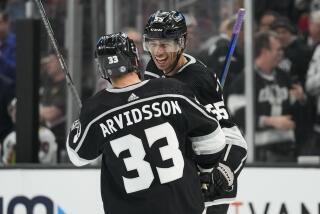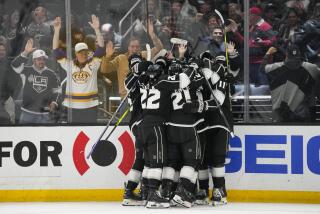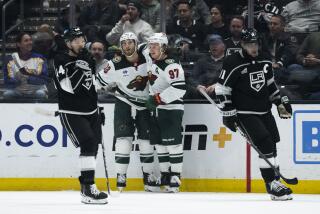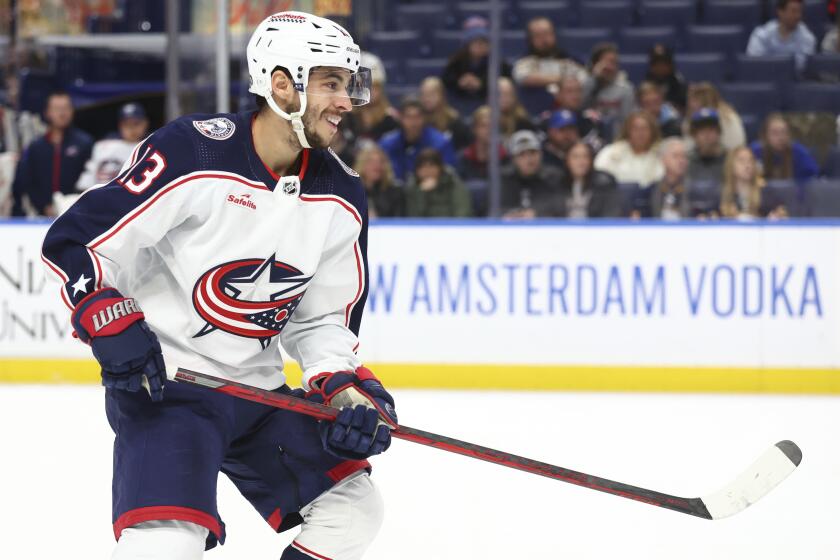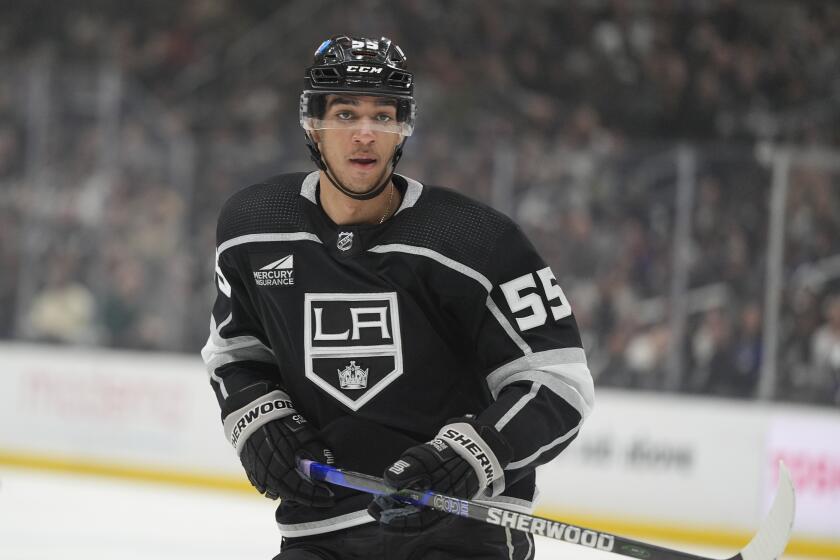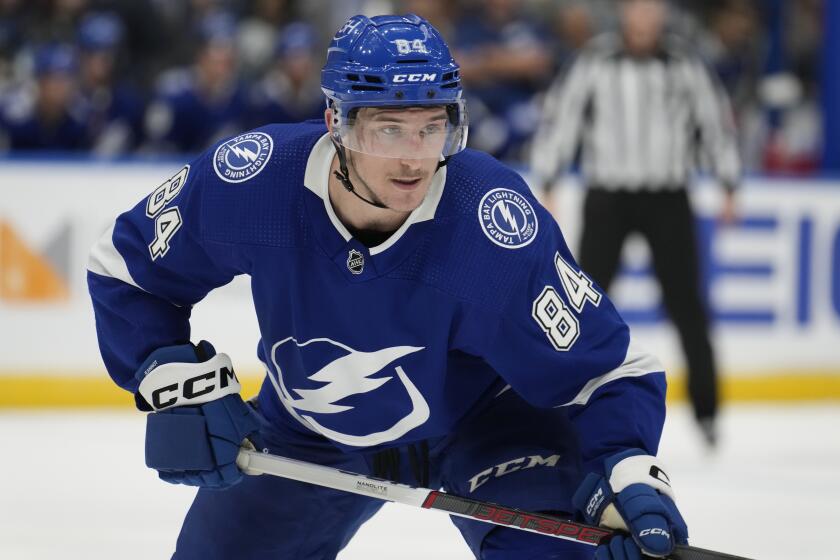What we learned from the Kings’ 4-3 overtime win over the Ducks
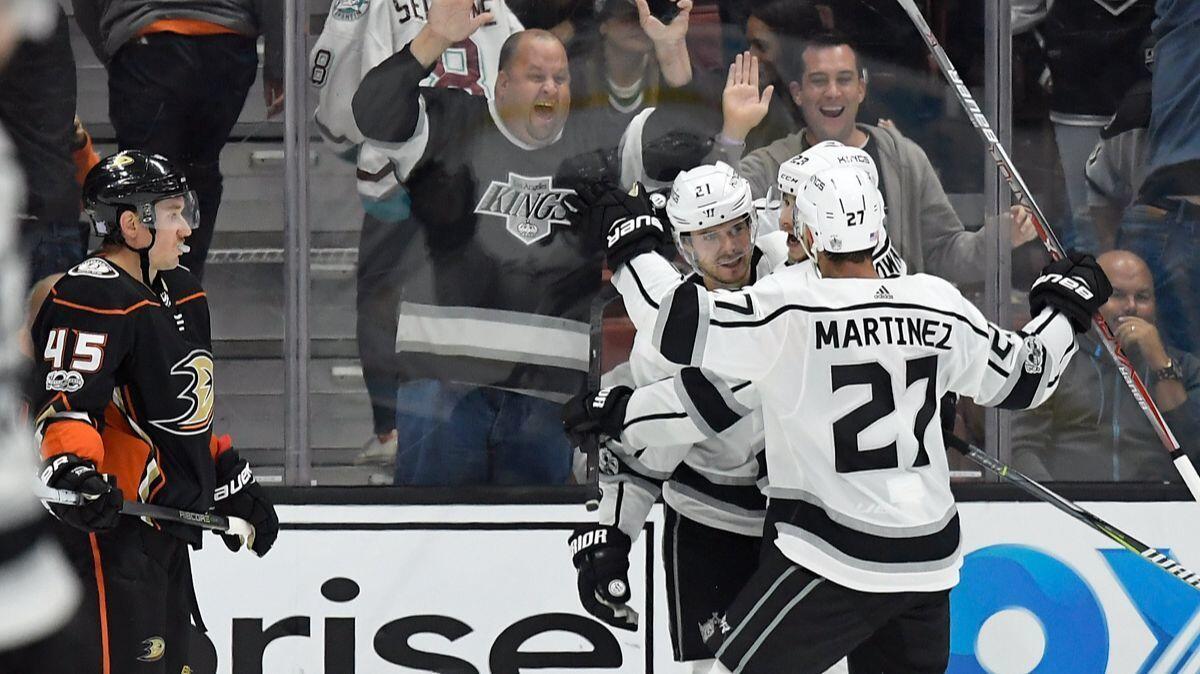
The Kings and Ducks engaged in their first meeting of the season, and boy, was it a wild one. There were fights, melees and plenty of extracurricular activity after the whistle in a game that resembled a playoff affair. The Kings inched within one point of the Western Conference lead with a 4-3 overtime victory over the Ducks, who extended their losing streak to four. Here’s what we learned:
Nick Shore is more than a grinder. Kings fans groaned earlier in the season when they saw Shore in overtime. He’s been a depth forward throughout his NHL career but does have a history of offense early in his career.
Shore’s game-winner was a beauty of a finish on Dustin Brown’s pass on a two-on-one. The Kings would like to see more of that.
“It was great for Shoresy,” Kings coach John Stevens said. “We think Shoresy’s got some offensive ability. To his credit, he’s been a real sound defensive player getting established in the National Hockey League. We think he can score, and he proved that tonight.”
Brown’s scoring touch continues. One season after he potted just 14 goals, the former Kings captain is already halfway to that total through 15 games. His third-period power-play goal tied the contest at 3, and he also added a point on Shore’s overtime clincher. If he can continue to find the back of the net, the Kings’ top line is that much more dangerous.
Parade of penalties. The Ducks’ outrageous penchant for penalties reached new heights with nine trips to the sin bin for a total of 21 minutes. Corey Perry was docked for two penalties and so was Kevin Bieksa. The Ducks have been shorthanded on 67 occasions this season, top 5 in the NHL. Something has to give.
“We talk about discipline, but it’s still tough,” said Ducks forward Rickard Rakell. “ ... We just have to be more careful with our sticks.”
Power-play not so powerful. The Ducks’ power-play, simply put, is bad. They’ve converted on less than 12% of their power-play opportunities, which ranks No. 30 in the league. Sure, some of that can be blamed on the absence of key contributors like Ryan Getzlaf, Patrick Eaves, Ryan Kesler and Cam Fowler. But right now, it’s not much of an advantage when the opposing team is shorthanded, and Randy Carlyle needs to find a solution.
“I thought the first [chance] was pretty good,” said Ducks assistant coach Trent Yawney. “We just didn’t finish off the play. The other thing I’d say is their penalty kill is like 93[%] or 94%. That’s pretty good. When it got down to it, they kind of shut us down. You have to give them credit too.”
Ryan Miller shines again. He only played 10:44 after replacing John Gibson, but the Ducks’ No. 2 again showed that he’s deserving of more opportunities. He might receive the call Thursday against his former team, the Vancouver Canucks, with Gibson now in concussion protocol. But the way the former Vezina trophy winner is playing, he shoudn’t be called on only when there’s consecutive games or an injury.
“He’s been terrific and Gibson has been as well, so you gotta have that,” said Yawney. “ ... As we go forward here we’re going to need them both.”
More to Read
Go beyond the scoreboard
Get the latest on L.A.'s teams in the daily Sports Report newsletter.
You may occasionally receive promotional content from the Los Angeles Times.
